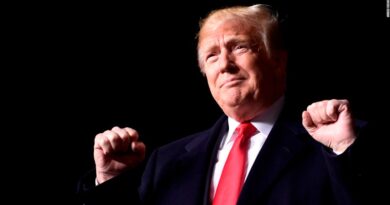Editorial: The Big Lie — Texas has been crying ‘election fraud’ since it blocked ex-slaves from voting

Oh, if only the White Man’s Primary Association of Dimmit County could see us now.
They and all the pioneers of similar all-white political organizations that sprang up in counties across Texas after Reconstruction would see their legacy well-preserved, their cunning strategies of restricting Black and Latino voting access well-heeded.
While they’d probably be flattered to see their protégés still relying on the same pretext they used to suppress minority voting — ‘voter fraud’ — they might wonder why, 100 years later, Texas lawmakers haven’t gotten some new material. And why, after courts have repeatedly debunked the notion of widespread voter fraud, Texans are still falling for it.
But here we are in 2021, with the Texas Senate having just passed SB 7, another attack on ballot access under the guise of “election integrity.” It would ban such threatening practices as voting after 9 p.m., drive-thru voting, and dropping off an absentee ballot in a secure drop box.
For anybody under the impression that President Trump invented the boogeyman of widespread voter fraud, or that maybe Republican strategist Karl Rove dreamed it up after that troubling close call in 2000 between George W. Bush and Al Gore, we’ve got some news for you, and some history.
Texas politicians have been crying voter fraud since at least 1902, when they used it to justify a poll tax. Supporters claimed that charging Black and Mexican-American laborers nearly a whole day’s pay to cast a ballot would make their votes too expensive for their political bosses to buy.
The true intent for the poll tax, according its architect A. W. Terrell, was to “protect the citizen” against “corrupt methods at the polls” and to eliminate “irresponsible voters,” or so he claimed in a 1906 piece published in the Dallas Morning News, headlined “Purity of Ballot.”
For ruling conservatives in this state — first white Democrats, now white Republicans — “voter fraud” is the trusty password that unlocks an arsenal of underhanded, often unconstitutional, tricks to retain political power and keep it out of the hands of those deemed undeserving of a voice and unqualified for a role in governing. Namely, Black and brown folks.
In a chilling exchange cited in the Fifth Circuit’s 2016 opinion on the Texas voter ID law, the court quotes the testimony of Vernon Burton, an historian of the South and race relations, who was asked about Texas’ “stated rationale” for each of its attempts to disenfranchise minority voters.
“What, in your opinion, was the stated rationale for the enactment of all-White primaries in Texas?” an attorney asked.
An ongoing editorial series about Texas’ obsessive pursuit of voter fraud.
Today:
Texas has used voter fraud as a pretext for voter suppression for more than a century
Tuesday:
The Republican Party’s obsession with voter fraud dates from Al Gore’s popular vote victory in 2000
This past Sunday:
Voter fraud is exceedingly rare, despite fevered attempts to discover it
The overzealous pursuit of fraud upends lives, even for a mistake
“The stated rationale was voter fraud,” Burton replied.
And “for the use of secret ballot provisions in Texas?”
“The stated rationale was to prevent voter fraud,” Burton replied.
And “for the use of the poll tax in Texas?”
“The stated rationale by the State was to prevent voter fraud,” Burton replied.
And “for re-registration requirements and voter purges?”
“The stated rationale was voter fraud,” Burton replied.
“Dr. Burton,” the attorney asked, “in your expert opinion, did these devices actually respond to sincere concerns or incidents – incidences of voter fraud?”
“No,” Burton replied.
It’s not that voter fraud didn’t exist in Texas history — it did; see Lyndon Johnson’s 1948 Senate election. But voter fraud in this century is extremely rare: only 174 people have been prosecuted out of 94 million votes since 2005.
And it’s not as if legislative heists of voter rights aren’t happening elsewhere — they are; see Georgia. But lawmakers in Texas, which has the most restrictive election laws in the country and a perpetually rock-bottom voter turnout rate, appear to have been the most successful in their thievery.
Texans who want it to stop must understand how it came to be.
For more than a century, Texas lawmakers have played whack-a-mole with the voting access of minorities, whom political leaders naturally viewed as threatening to the status quo of systemic racism and white hegemony.
As post-Civil War Reconstruction ended, Texas was among the Southern states that robbed freed Blacks of their newfound voting power through several schemes that were crafted to appear race-neutral but targeted the poor and less-educated, knowing they were disproportionately Black and brown. The laws included barring assistance for illiterate voters and those who needed interpreters, and more overt measures such as white-only primaries that specifically barred Black voters, and in some areas, Mexican-Americans, from choosing candidates in the only elections that mattered in a one-party state.
In his book, historian David Montejano describes Dimmit County’s white primary, quoting from a 1914 issue of the Carrizo Springs Javelin, which frequently editorialized for the system: it “absolutely eliminates the Mexican vote as a factor in nominating county candidates, though we graciously grant the Mexican the privilege of voting for them afterward.”
Another racist law in 1922 outright banned Black voters from Texas primaries. When the Supreme Court declared it unconstitutional in 1927, lawmakers allowed political parties to decide who could participate in primaries, which Democrats promptly did — once again excluding all non-white voters under a law that wasn’t overturned until 1944.
After the 24th Amendment banned the poll tax in 1964, Texas lawmakers wasted no time replacing it with a restrictive annual re-registration policy. After that was ruled unconstitutional in 1971, Texas hustled to enact a voter purge law that required the entire electorate to re-register. The Justice Department stopped it from being implemented.
That was only possible because, in 1975, Texas’ sordid history of voter suppression earned it a spot on the list of jurisdictions singled out in Section 5 of the Voting Rights Act that required them to prove to the Justice Department or a federal judge that voting changes didn’t discriminate.
But in 2011, Texas lawmakers broke norms, suspended rules and sidelined other priorities amid an urgent $27 billion budget shortfall to pass what Gov. Rick Perry deemed emergency legislation: requiring a picture ID to vote.
Even though Republicans claimed to have patterned SB 14 after a similar law in Indiana, Texas’ version was intentionally callous, providing no work-around for indigent voters, as Indiana and even Georgia had, and tailoring its list of acceptable IDs to the desired electorate: a concealed handgun license was acceptable identification; a student ID was not.
The law was blocked for years in the courts, including almost immediately after a federal judge in Washington D.C. ruled that it didn’t pass federal preclearance requirements. But just two years later, Texas’ dreams were answered by a landmark Supreme Court ruling striking down those requirements.
The justices reasoned that Texas and other states on the list, most in the South, had mended their racist ways enough to skip having to clear voting law changes.
“Our country has changed,” Chief Justice John Roberts wrote, giving way to tragic optimism. “While any racial discrimination in voting is too much, Congress must ensure that the legislation it passes to remedy that problem speaks to current conditions.”
Texas promptly demonstrated its own current conditions.
“Within mere hours of the court’s decision, the Texas governor and attorney general both announced that the state would enforce SB 14 immediately,” Burton, the historian, wrote in a Louisiana Law Review article. “As a result, Texas was able to allow SB 14 to act as a modern-day version of the poll tax, restrictive voter registration laws, and similar devices Texas utilized throughout its history to suppress minority voting rights.”
Court challenges continued for several years, during which time a federal judge in Corpus Christi found in 2014 and again in 2017 that lawmakers intentionally discriminated against minority voters. The law should have died when the Supreme Court refused to hear Texas’ appeal but instead, lawmakers tweaked it just enough for the Fifth Circuit in 2018 to allow it to stand.
The victory, if partial, only encouraged more voting restrictions, out-sized punishments and intimidation tactics to curb minority voting.
In the current session, Texas lawmakers, having ransacked nearly every inch of ballot access that the courts would thus far allow, have run so short on voter suppression ideas that they are getting desperately creative: allowing partisan poll observers to hound voters with cell phone cameras and threatening county clerks with a state jail felony if they attempt to mass-mail ballot applications.
Republican leaders pushing the restrictions accuse critics of “race-baiting” and insist their efforts are about securing elections. Sure they are: securing elections for themselves.
Integrity is no more the goal for them than it was for the white primary associations of the 1900’s. Only today’s voter fraud warriors have laser pointers.
In a video presentation leaked earlier this month, a GOP precinct chair calls on thousands of white Republicans in “safe” Houston suburban precincts to form an election integrity “brigade” and have the “courage” to volunteer at polling places where he says “problems are occurring.”
If they don’t, he says, “this fraud down here is really going to continue.” He doesn’t define “this fraud” or say where “down here” is. He doesn’t have to.
He simply moves his laser pointer along a map, tracing the circumference of greater Houston, the most ethnically and racially diverse city in the nation.


